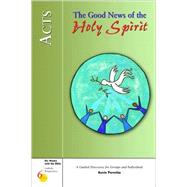
| How to Use This Guide | 4 | (2) | |||
| A History We Can Share In | 6 | (6) | |||
|
12 | (12) | |||
|
|||||
|
24 | (12) | |||
|
|||||
|
36 | (12) | |||
|
|||||
|
48 | (12) | |||
|
|||||
|
60 | (12) | |||
|
|||||
|
72 | (12) | |||
|
|||||
| You Shall Receive Power | 84 | (4) | |||
| Other Ways of Saying Church | 88 | (4) | |||
| Suggestions for Bible Discussion Groups | 92 | (3) | |||
| Suggestions for Individuals | 95 | (1) | |||
| Resources | 96 |
The New copy of this book will include any supplemental materials advertised. Please check the title of the book to determine if it should include any access cards, study guides, lab manuals, CDs, etc.
The Used, Rental and eBook copies of this book are not guaranteed to include any supplemental materials. Typically, only the book itself is included. This is true even if the title states it includes any access cards, study guides, lab manuals, CDs, etc.